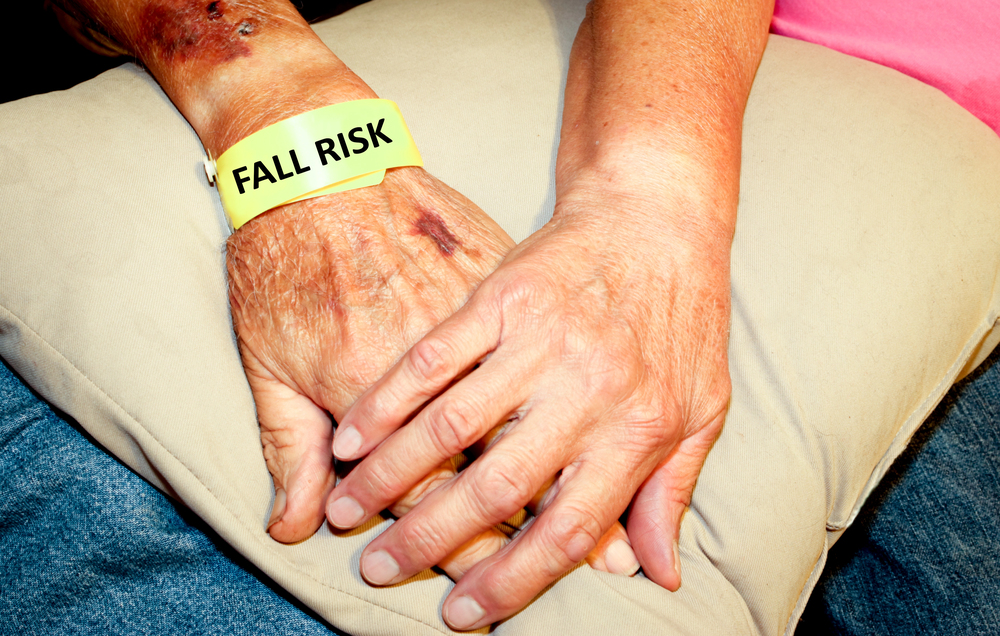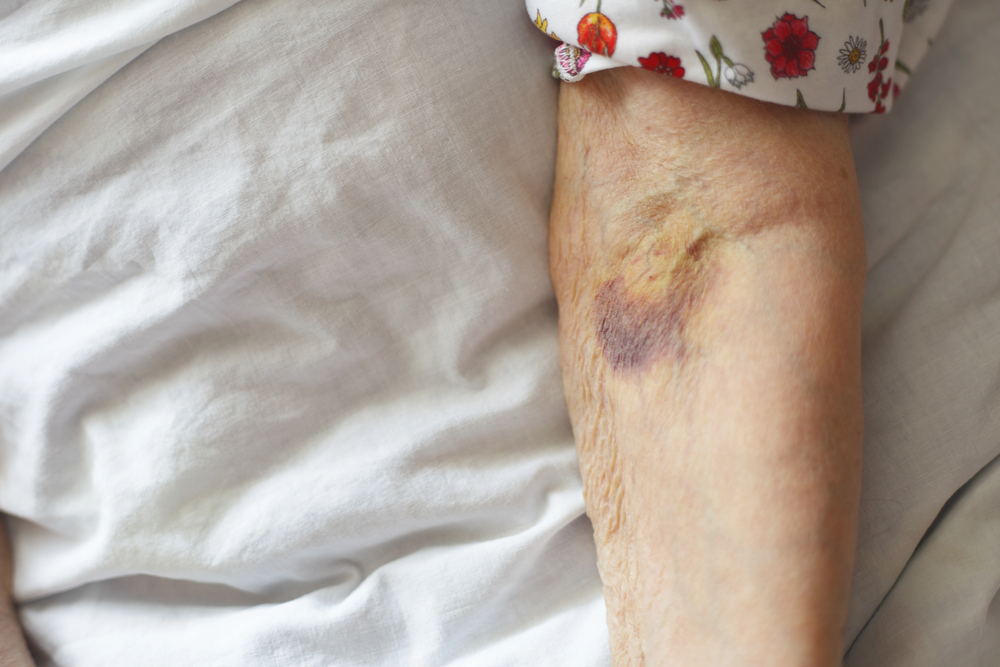The Nursing Home Law Center is committed to providing the legal resources necessary to hold negligent facilities accountable.
Naperville Nursing Home Abuse Lawyer
Expert Legal Counsel for Nursing Home Abuse Victims & Family Members in Naperville, IL

Licensed in Illinois
Do you believe a loved one is the victim of nursing home abuse in Naperville, IL? A trusted Naperville nursing home abuse lawyer from Nursing Home Law Center is ready to help. Whether the case involves emotional abuse, sexual abuse, or nursing home neglect, we’ll guide your family every step of the way.
With over 100 years of combined experience and more than $450 million recovered, our personal injury lawyers fight for victims of nursing home abuse and neglect nationwide. We help families pursue compensation for medical bills, other financial harm, and the trauma caused by abuse.
If your loved one has suffered abuse in a DuPage County nursing home or assisted living facility, don’t wait. From verbal abuse to physical disabilities caused by neglect, we’re here to help.
Call now or request your free consultation online. No fees unless we win.
Settlements Recovered by Our Legal Team
At Nursing Home Law Center, our injury lawyers have recovered millions for families whose loved ones suffered abuse, neglect, or fatal harm in long-term care settings. Whether it’s a fall, pressure sore, or assault, nursing home abuse takes many forms—and we’re committed to seeking justice for every victim.
Below are just a few examples of favorable outcomes we’ve secured on behalf of clients. If you believe your loved one was harmed in a facility, contact us for a free consultation.
- $3,000,000 settlement for the passing of a resident who developed fatal pressure sores after hip surgery when the nursing home failed to provide basic care.
- $2,150,000 recovered for a family after a resident died from bed sores and sepsis in an understaffed nursing home.
- $1,700,000 nursing home fall settlement involving a subdural hematoma and hip fracture caused by lack of supervision.
- $1,500,000 for a family whose loved one ingested chemicals left in an unlocked closet—another tragic example of facility negligence.
- $735,000 secured for a resident who suffered spinal fractures after falling from a wheelchair left unattended.

Why Hire Nursing Home Law Center
Families trust nursing homes to provide care, but when that trust is broken, the results can be devastating. If your loved one has experienced abuse and neglect, our team is ready to help you fight back.
At Nursing Home Law Center, we focus exclusively on nursing home abuse cases. With over 25 years of experience and a 98% success rate, we’ve helped thousands of families pursue compensation.
Here’s how we help:
- Investigate abuse
- Work with medical experts to build your case
- Handle all legal communications and paperwork
- Fight for the maximum compensation your family deserves
Naperville’s growing senior population has increased demand for high-quality nursing care. Sadly, not every facility meets the standards required under Illinois law. Understaffed environments, poor hiring practices, and inadequate supervision can lead to home abuse and neglect.
Families must stay vigilant for early warning signs of abuse. Our personal injury lawyers help victims navigate these challenges and hold negligent nursing homes accountable for the harm caused. We can help you file legal action against Naperville, Illinois, nursing homes such as:
- The Pearl of Naperville
- Arista Healthcare
- Meadowbrook Manor – Naperville
- St Patrick’s Residence
- Alden Estates of Naperville
- The Springs at Monarch Landing
- Tabor Hills Health Care Facility
Contact us today for a free consultation. We’re here to hold negligent nursing home facilities accountable.
Why Hire Nursing Home Law Center
At Nursing Home Law Center, we are dedicated to securing justice and obtaining compensation for victims of nursing home abuse. Our skilled legal team has a strong history of managing abuse cases with care and achieving favorable settlements and verdicts.
We conduct comprehensive investigations to make sure every aspect of abuse is addressed, from medical costs to emotional distress and other damages. With extensive knowledge of nursing home abuse claims, we handle the legal process efficiently and fight hard to safeguard your rights.
Throughout the case, we offer compassionate, clear guidance to ensure you and your loved ones stay informed, supported, and confident at every stage.
Understanding Naperville Nursing Home Abuse
Residents of nursing homes, assisted living facilities, and similar care settings are especially vulnerable to abuse. Many nursing home patients are elderly, physically disabled, or cognitively impaired, making them easy targets for intentional abuse, neglect, and exploitation. Unfortunately, nursing home abuse in Naperville, IL, often goes unreported or ignored until serious harm has occurred.
Types of Nursing Home Abuse
Naperville nursing home abuse comes in many forms, ranging from physical to mental abuse, all of which can result in serious injuries and financial harm.
Physical Abuse
Includes hitting, shoving, improper restraint, or even rough handling that causes serious injuries.
Emotional Abuse
Verbal threats, humiliation, isolation, or manipulation that cause emotional distress or trauma.
Sexual Assault
Any non-consensual sexual contact, often committed against residents unable to consent or resist.
Financial Abuse
Unauthorized use of a resident’s money or property, including financial exploitation and theft.
Neglect
Failing to provide basic care, such as food, hygiene, or medical treatment, is a form of nursing home negligence.

Signs of Nursing Home Abuse
Families should watch for warning signs that a nursing home resident may be in danger. These include:
- Sudden weight loss
- Malnutrition or dehydration
- Bruises, cuts, or unexplained injuries
- Pressure sores (bedsores)
- Frequent infections or untreated illnesses
- Poor hygiene or unsanitary conditions
- Personality changes or withdrawal
- Slip-and-fall injuries or signs of instability
- Inexplicable financial activity
- Untreated STDs or infections
Recognizing these symptoms early is crucial. Nursing home patients who have suffered abuse often show subtle changes long before major injuries occur. If you notice anything unusual, contact a Naperville nursing home abuse lawyer for legal representation, which can protect your loved one and help stop the mistreatment before it escalates.
Long-Term Consequences of Nursing Home Abuse
When left unchecked, nursing home abuse and neglect can have devastating consequences for elderly residents, including:
- PTSD, anxiety, or depression
- Ongoing medical issues caused by infections or falls
- Severe nutritional deficiencies and dehydration-related complications
- Physical decline due to pressure sores or immobility
- Shortened life expectancy
- Death
Common Causes of Naperville Nursing Home Abuse and Neglect
In many nursing home abuse cases, the cause is rooted in either individual misconduct or system-wide failure. Common issues include:
- Poor or inadequate training
- Understaffed or overwhelmed facilities
- Failure to monitor residents or follow medical plans
- Unqualified employees
- Lack of proper training in de-escalation and care standards
These problems often violate standards set by the Illinois Department of Public Health and may form the basis of a nursing home abuse lawsuit.
Naperville Nursing Home Abuse Statistics
Of the seven nursing homes listed on CMS at the time of writing, only one facility received a “much above average” rating. Two others earned “above average” scores. However, three Naperville nursing homes were rated below average or worse. One facility has been cited in the past for instances of nursing home abuse, receiving a “much below average” overall rating.
Nursing Home Residents’ Legal Rights in Illinois
Under the Illinois Nursing Home Care Act (210 ILCS 45/), nursing home residents have the right to be free from abuse, neglect, and financial exploitation. They are also entitled to proper medical care, dignity, and personal safety.
When these rights are violated, the residents themselves can file a nursing home abuse claim if they are capable of doing so. If the resident is incapacitated or unable to file a claim, their family members or a designated legal representative can take action on their behalf.
Wrongful Death
If a family member died due to nursing home neglect, medical errors, or intentional abuse, you can file a lawsuit under the Illinois Wrongful Death Act (740 ILCS 180/). Our team can help you pursue damages for emotional distress, medical expenses, and the loss of your loved one’s companionship and care.

How to Report Nursing Home Abuse in Naperville, IL
If you suspect nursing home abuse in Naperville, it’s critical to report it right away to protect your loved one and others at the facility. You can take the following steps:
- Contact the Illinois Department of Public Health (IDPH) – IDPH investigates complaints against Illinois nursing homes. File a report online or call their 24-hour Nursing Home Hotline at 1-800-252-4343.
- Reach out to local authorities – In emergencies or cases involving sexual abuse, physical abuse, or death, contact Naperville Police or DuPage County Adult Protective Services.
- Speak with a Naperville nursing home abuse lawyer – An experienced nursing home abuse attorney can help you report nursing home abuse, gather medical records, and guide your legal action.
How to Prove Nursing Home Abuse and Neglect in Naperville, IL
To prove nursing home negligence, you must show that the facility or staff breached their legal duty of care. Under Illinois law, the four elements of negligence include:
- Duty of care
- Breach of duty
- Causation
- Damages
Our Naperville nursing home abuse lawyers gather medical records, expert opinions, and facility documentation to build a case and show the impact of the nursing home abuse or neglect.
Liability in Nursing Home Abuse and Neglect Cases
In nursing home abuse cases, multiple parties may be legally responsible for the harm caused to nursing home residents. Identifying the liable party is essential to pursuing financial compensation through a nursing home abuse lawsuit.
- The Naperville Nursing Home: May be liable for poor training, understaffing, or failure to maintain a safe environment. Facilities are often accountable for their employees’ actions or failure to monitor them.
- Staff Members: Nurses and aides can be held personally responsible for physical abuse, sexual abuse, verbal abuse, or medical negligence.
- Administrators: Can be liable if they ignore complaints, overlook risks, or fail to report suspected abuse.
- Third-Party Contractors: External providers (e.g., medical staff or security) may share liability if their actions contribute to negligence or harm in a Naperville nursing home.
- Product Manufacturers: If faulty medical equipment injures a resident, the manufacturer may be liable for producing or selling a dangerous product.
Damages You Can Recover Through a Nursing Home Abuse Claim
Elder abuse victims and their families have the right to pursue compensation for the harm caused when the nursing home failed to maintain its duty of care. Through a personal injury claim, you may be able to recover several types of damages, including:
Economic damages are intended to cover the tangible, out-of-pocket expenses directly resulting from the abuse or neglect. These damages include:
- Medical bills
- Relocation costs
- Funeral and burial costs
- Lost assets or funds
Non-economic damages address the emotional and psychological abuse and suffering experienced by the victim and their family due to the abuse or neglect. Examples include:
- Pain and suffering
- Emotional distress
- Loss of enjoyment of life
- Loss of companionship
Punitive damages are awarded in cases where the abuse was particularly egregious or malicious. They are not tied to specific losses but are intended to punish the responsible parties and deter future misconduct.
In addition to physical injuries, victims often suffer major financial consequences from stolen assets, increased medical expenses, or the need for specialized care. Filing a personal injury claim helps ensure your family recovers these losses and sends a message that home abuse and neglect will not be tolerated.
Statute of Limitations for Naperville Nursing Home Abuse Cases
The Illinois statute of limitations for most nursing home abuse cases is two years, as established by 735 ILCS 5/13-202. This time limit applies to legal action involving personal injuries, including those arising from nursing home neglect, financial abuse, or emotional or psychological abuse.
The two-year period typically begins on the date the abuse occurred or when it was discovered. In cases involving fatalities, the filing deadline allows a two-year window from the date of death.

Consult Naperville Nursing Home Abuse Lawyers Near You!
If you suspect abuse or neglect, don’t wait to act. Our Naperville nursing home abuse lawyers are ready to help you protect your loved one and hold the responsible nursing home facility accountable.
We focus solely on nursing home abuse cases, and our legal team has recovered over $450 million for victims nationwide. Whether you’re dealing with nursing home neglect, financial abuse, or the tragic loss of a family member in a wrongful death lawsuit, our experienced personal injury lawyers are here to support you.
We offer a free initial consultation to discuss your situation confidentially and help you understand your legal options. Our goal is to achieve a favorable outcome and pursue maximum compensation for every client, whether through settlement or trial. With a proven team of injury lawyers and a long track record of seeking justice for victims, we are ready to fight for the compensation your family deserves.
We work on a contingency fee basis—you pay nothing unless we win your case. Call us at (800) 926-7565 or fill out our contact form.

All content undergoes a thorough legal review by our experienced attorneys.
Jonathan Rosenfeld is a leading Chicago nursing home injury lawyer with 25 years of experience focused on elder abuse litigation. Recognized for his dedication, he has received recognition from Illinois Trial Lawyers, Million Dollar Advocates, and Super Lawyers.
Illinois Nursing Home Abuse Lawyers
- Aurora Nursing Home Abuse Lawyer
- Bloomington Nursing Home Abuse Lawyer
- Champaign Nursing Home Abuse Lawyer
- Chicago Nursing Home Abuse Lawyer
- Cicero Nursing Home Abuse Lawyer
- Elgin Nursing Home Abuse Lawyer
- Joliet Nursing Home Abuse Lawyer
- Naperville Nursing Home Abuse Lawyer
- Peoria Nursing Home Abuse Lawyer
- Rockford Nursing Home Abuse Lawyer
- Schaumburg Nursing Home Abuse Lawyer
- Springfield Nursing Home Abuse Lawyer
- Waukegan Nursing Home Abuse Lawyer

